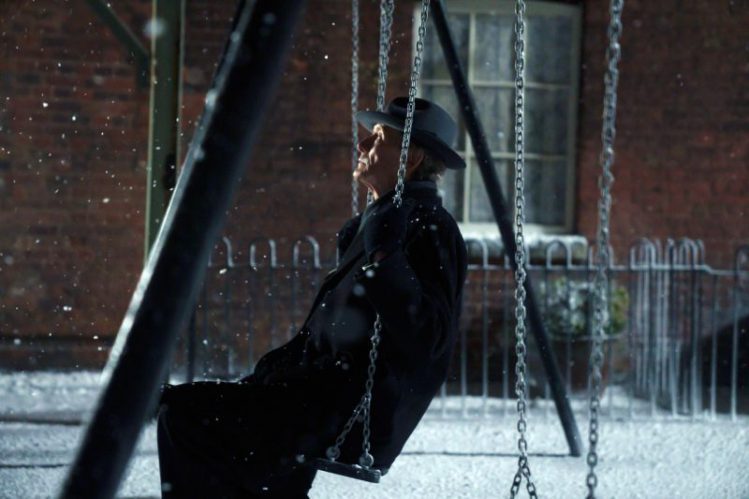
(For the audio version of this review, please visit: http://brothersinchristcmf.org/wp-content/uploads/2023/01/Mass-Blog-Movie-Review-Living-2023.mp3)
The movie “Living” is the story of a dying man who’s born again—but not in the Christian sense. However, his story has many of the elements of Christ’s parables: a person in need of redemption, a reminder of his mortality, and a promise of new life.
Our parable begins with this retirement-age zombie bureaucrat, commuting with others like him to a graveyard-like office where civic projects like parks and playgrounds get buried and forgotten. These fellow zombies learn to never look one another in the eyes. This gives them permission to stay dead and to bury with them the projects they’re assigned. Thus, the bureaucratic graveyard they populate can’t help the little living humans these zombies were meant to serve.
One day this lead-zombie bureaucrat learns he has a fatal cancer. Suddenly the scales fall from his eyes. That night this newly sighted zombie feels the need to live. He goes to a pub where this nightspot’s pianist takes requests. The living dead man suddenly remembers a Scottish folk song he learned as a child: “Oh Rowan Tree.” The pianist starts singing it, then this corpse comes to life and takes over:
We sat beneath thy spreadin’ shade
The bairnies round thee ran
They pulled thy bonnie berries red,
And necklaces they strang
My mother, oh! I see her still,
She smil’d our sports to see
Wi’ little jeannie on her lap,
And jamie on her knee
Oh rowan tree!
Soon this reborn dying man returns to the office, looks his co-workers in the eyes, and convinces them to resurrect that buried playground project. After his death, the little neighborhood “bairnies” to whom he bequeathed this newborn playground give life to that Scottish folk song about a tree whose fruit is love.
As we get closer to the season of Lent, this movie might offer some good raw material for a family meditation about the life we are called to cultivate from our own ashes.
–Tom Andel